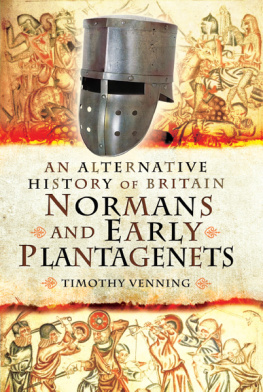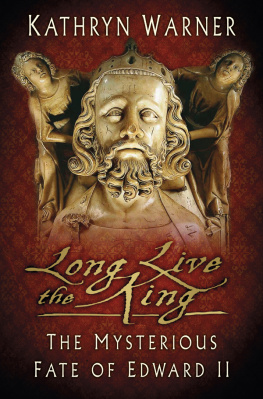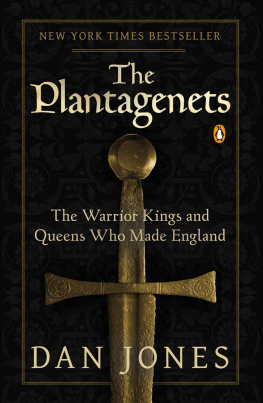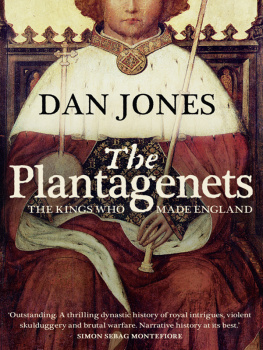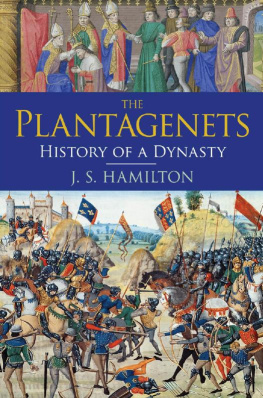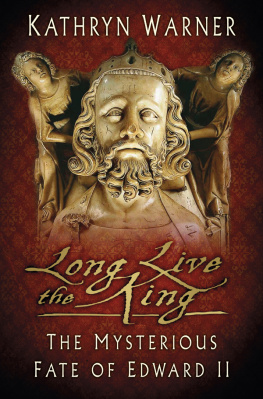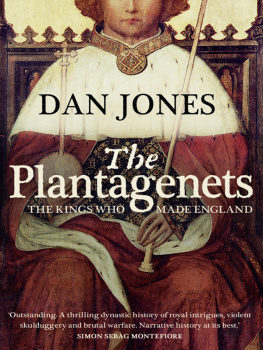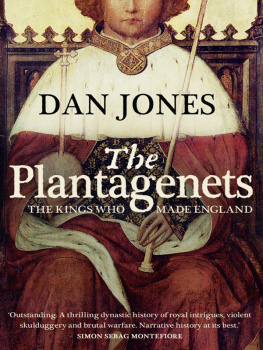William Stubbs - The Early Plantagenets
Here you can read online William Stubbs - The Early Plantagenets full text of the book (entire story) in english for free. Download pdf and epub, get meaning, cover and reviews about this ebook. year: 2011, publisher: Barnes & Noble, genre: Art. Description of the work, (preface) as well as reviews are available. Best literature library LitArk.com created for fans of good reading and offers a wide selection of genres:
Romance novel
Science fiction
Adventure
Detective
Science
History
Home and family
Prose
Art
Politics
Computer
Non-fiction
Religion
Business
Children
Humor
Choose a favorite category and find really read worthwhile books. Enjoy immersion in the world of imagination, feel the emotions of the characters or learn something new for yourself, make an fascinating discovery.
- Book:The Early Plantagenets
- Author:
- Publisher:Barnes & Noble
- Genre:
- Year:2011
- Rating:3 / 5
- Favourites:Add to favourites
- Your mark:
- 60
- 1
- 2
- 3
- 4
- 5
The Early Plantagenets: summary, description and annotation
We offer to read an annotation, description, summary or preface (depends on what the author of the book "The Early Plantagenets" wrote himself). If you haven't found the necessary information about the book — write in the comments, we will try to find it.
Part of the Epochs of Modern History series, The Early Plantagenets examines an era in the history of England extending from the accession of Stephen in 1135 to the death of Edward II in 1327, and from the beginning of the constitutional growth of a consolidated English people to the beginning of the long struggle with France under Edward III.
The Early Plantagenets — read online for free the complete book (whole text) full work
Below is the text of the book, divided by pages. System saving the place of the last page read, allows you to conveniently read the book "The Early Plantagenets" online for free, without having to search again every time where you left off. Put a bookmark, and you can go to the page where you finished reading at any time.
Font size:
Interval:
Bookmark:
WILLIAM STUBBS

This 2011 edition published by Barnes & Noble, Inc.
All rights reserved. No part of this publication may be reproduced, stored in a retrieval system, or transmitted, in any form or by any means, electronic, mechanical, photocopying, recording, or otherwise, without prior written permission from the publisher.
Barnes & Noble, Inc.
122 Fifth Avenue
New York, NY 10011
ISBN: 978-1-4114-5319-7
CHAPTER I
INTRODUCTION
Importance of the EpochIts character in French and German HistoryIn English HistoryGeographical SummaryItalyGermanyFranceSpain.
T HE geographical area of that history which alone deserves the name has more than once changed. The early home of human society was in Asia. Greece and Italy successively became the theatres of the world's drama, and in modern times the real progress of society has moved within the limits of Western Christendom. So, too, with the material history. At one period the growth of the life of the world is in its literature, at another in its wars, at another in its institutions. Sometimes everything circles round one great man; at other times the key to the interest is found in some complex political idea such as the balance of power, or the realization of national identity. The successive stages of growth in the more advanced nations are not contemporaneous and may not follow in the same order. The quickened energy of one race finds its expression in commerce and colonization, that of another in internal organization and elaborate training, that of a third in arms, that of a fourth in art and literature. In some the literary growth precedes the political growth, in others it follows it; in some it is forced into premature luxuriance by national struggles, in others the national struggles themselves engross the strength that would ordinarily find expression in literature. Art has flourished greatly both where political freedom has encouraged the exercise of every natural gift and where political oppression has forced the genius of the people into a channel which seemed least dangerous to the oppressor. Still, on the whole, the European nations in modern history emerge from somewhat similar circumstances. Under somewhat similar discipline, and by somewhat similar expedients, they feel their way to that national consciousness in which they ultimately diverge so widely. We may hope, then, to find, in the illustration of a definite section or well ascertained epoch of that history, sufficient unity of plot and interest, a sufficient number of contrasts and analogies, to save it from being a dry analysis of facts or a mere statement of general laws.
Such a period is that upon which we now enter; an epoch which in the history of England extends from the accession of Stephen to the death of Edward II.; that is, from the beginning of the constitutional growth of a consolidated English people to the opening of the long struggle with France under Edward III. It is scarcely less well defined in French and German history. In France it witnesses the process through which the modern kingdom of France was constituted; the aggregation of the several provinces which had hitherto recognized only a nominal feudal supremacy, under the direct personal rule of the king, and their incorporation into a national system of administration. In Germany it comprises a more varied series of great incidents. The process of disruption in the German kingdom, never well consolidated, had begun with the great schism between North and South under Henry IV., and furnished one chief element in the quarrel between pope and emperor. During the first half of the twelfth century it worked more deeply, if not more widely, in the rivalry between Saxon and Swabian. Under Frederick I. it necessitated the remodelling of the internal arrangement of Germany, the breaking up of the national or dynastic dukedoms. Under Frederick II. it broke up the empire itself, to be reconstituted in a widely different form and with altered aims and pretensions under Rudolf of Hapsburg. This is by itself a most eventful history, in which the varieties of combinations and alternations of public feeling abound with new results and illustrations of the permanence of ancient causes.
In the relations of the Empire and the Papacy the same epoch contains one cycle of the great rivalry, the series of struggles which take a new form under Frederick I. and Alexander III., and come to an end in the contest between Lewis of Bavaria and John XXII. It comprises the whole drama of the Hohenstaufen, and the failure of the great hopes of the world under Henry VII., which resulted in the constituting of a new theory of relations under the Luxemburg and Hapsburg emperors.
Whilst these greater actors are thus preparing for the struggle which forms the later history of European politics, Spain and Italy are passing through a different discipline. In the midst of all runs the history of the Church and the Crusades, which supplies one continuous clue to the reading of the period, a common ground on which all the actors for a time and from time to time meet.
But the interest of the time is not confined to political history. It abounds with character. It is an age in which there are very many great men, and in which the great men not only occupy but deserve the first place in the historian's eye. It is their history rather than the history of their peoples that furnishes the contribution of the period to the world's progress. This is the heroic period of the middle ages,the only period during which, on a great scale and on a great stage, were exemplified the true virtues which were later idealized and debased in the name of chivalry,the age of John of Brienne and Simon de Montfort, of the two great Fredericks, of St. Bernard and Innocent III., and of St. Lewis and Edward I. It is free for the most part from the repulsive features of the ages that precede, and from the vindictive cruelty and political immorality of the age that follows. Manners are more refined than in the earlier age and yet simpler and sincerer than those of the next; religion is more distinctly operative for good and less marked by the evils which seem inseparable from its participation in the political action of the world. Yet not even the thirteenth century was an age of gold, much less those portions of the twelfth and fourteenth which come within our present view. It was not an age of prosperity, although it was an age of growth; its gains were gained in great measure by suffering. If Lewis IX. and Edward I. taught the world that kings might be both good men and strong sovereigns, Henry III. and Lewis VII. taught it that religious habits and even firm convictions are too often insufficient to keep the weak from falsehood and wrong. The history of Frederick II. showed that the race is not always to the swift or the battle to the strong, that of Conrad and Conradin that the right is not always to triumph, and that the vengeance which evil deeds must bring in the end comes in some cases very slowly and with no remedy to those who have suffered.
It is but a small section of this great period that we propose to sketch in the present volume; the history of our own country during this epoch of great men and great causes; but it comprises the history of what is one at least of England's greatest contributions to the world's progress. The history of England under the early kings of the house of Plantagenet unfolds and traces the growth of that constitution which, far more than any other that the world has ever seen, has kept alive the forms and spirit of free government; which has been the discipline that formed the great free republic of the present day; which was for ages the beacon of true social freedom that terrified the despots abroad and served as a model for the aspirations of hopeful patriots. It is scarcely too much to say that English history, during these ages, is the history of the birth of true political liberty. For, not to forget the services of the Italian republics, or of the German confederations of the middle ages, we cannot fail to see that in their actual results they fell as dead before the great monarchies of the sixteenth century, as the ancient liberties of Athens had fallen; or where the spirit survived, as in Switzerland, it took a form in which no great nationality could work. It was in England alone that the problem of national self-government was practically solved; and although under the Tudor and Stewart sovereigns Englishmen themselves ran the risk of forgetting the lesson they had learned and being robbed of the fruits for which their fathers had labored, the men who restored political consciousness, and who recovered the endangered rights, won their victory by argumentative weapons drawn from the storehouse of medieval English history, and by the maintenance and realization of the spirit of liberty in forms which had survived from earlier days. It is an introduction to the study of English history during the period of constitutional growth, that we shall attempt to sketch the epoch, not as a Constitutional History, but as an outline of the period and of the combinations through which the constitutional growth was working, the place of England in European history and the character of the men who helped to make her what she ultimately became. Before we begin, however, we may take a glance at the map of Europe at the point of time from which we start.
Font size:
Interval:
Bookmark:
Similar books «The Early Plantagenets»
Look at similar books to The Early Plantagenets. We have selected literature similar in name and meaning in the hope of providing readers with more options to find new, interesting, not yet read works.
Discussion, reviews of the book The Early Plantagenets and just readers' own opinions. Leave your comments, write what you think about the work, its meaning or the main characters. Specify what exactly you liked and what you didn't like, and why you think so.


